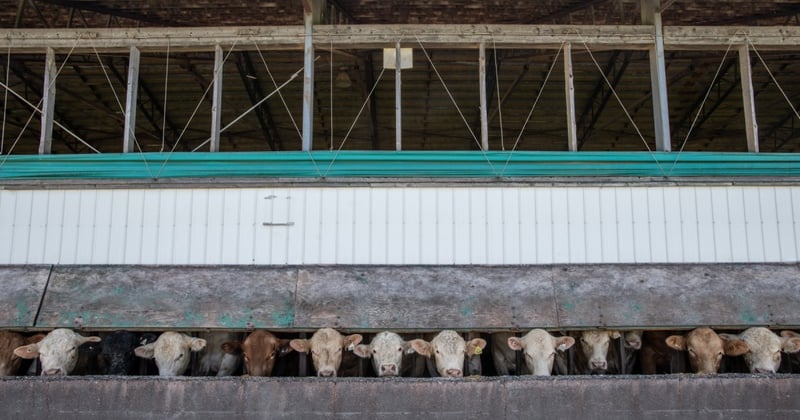
COP28 fails to address animal agriculture
News
As the United Nations climate change conference - COP28 - concludes, World Animal Protection Canada acknowledges progress made by countries committing to transition away from fossil fuels but emphasizes a significant oversight: the lack of commitment to transform our food system, particularly addressing factory farming's role in climate change.
COP28's commitments and gaps
COP28 achieved notable progress in two key areas: significant commitments were made towards renewable energy and extensive global support for sustainable agriculture was received, crucial for enhancing food security. Yet, as the summit closed, the crucial aspect of factory farming in climate change mitigation was notably absent.
Canada's role and responsibilities
Our Farming Campaign Manager, Lynn Kavanagh, points out, "The summit's declaration mentions sustainable and resilient food systems but misses the opportunity to use these systems as a tool for climate change mitigation." This gap is critical for Canada to meet its Paris Climate Agreement targets. Our research indicates that a shift to lower meat consumption in Canada could significantly reduce emissions, a necessary step to achieve our 2030 climate goals.
The urgency for sustainable food systems
Globally, animal agriculture is responsible for a significant portion of greenhouse gas emissions, between 25-34%, with factory farming contributing substantially. Without addressing this, achieving the 1.5°C global temperature rise limit becomes increasingly challenging.
In Canada alone, research by Navius, commissioned by World Animal Protection, reveals that the country's agricultural sectors produce 91 megatonnes of CO2 emissions annually.
Canada’s potential impact
This research also found that if Canadians move from a high-meat consumption diet to a low-meat consumption one, the impacts on greenhouse gas emissions would be enough to close the gap that remains for Canada to achieve its 2030 climate targets.
The move would reduce emissions across the agricultural industry by 13.5 megatons by 2030, or the equivalent of taking nearly six-million cars off the road annually.
There is an opportunity for Canada to lead by promoting policies that encourage a plant-based diet, aligning with our evidence-based food guide. With our strong legume farming industry, Canada can enhance its economy through the plant-protein market.
Our commitment to advocacy and COP30
At World Animal Protection Canada, we will continue collaborating with the Government of Canada and other sectors to push for a climate-friendly, humane, and resilient food system. We believe it is essential to integrate sustainable agriculture into climate action plans, ensuring a healthier planet for humans and animals alike.
While COP28 has taken steps towards a fossil fuel transition, the summit's outcomes remind us of the work still needed. As we look ahead, our mission remains clear: advocate for transformative changes in our food systems for the betterment of our planet and all its inhabitants.
By COP30 in Brazil in 2025, countries, including Canada, are expected to include food and agriculture in their Nationally Determined Contributions (NDCs).
Canada has a unique opportunity to lead by promoting policies that encourage adherence to our evidence-based food guide, which recommends eating less meat and more plant-based foods for a healthier, climate-friendly diet. As a significant global producer and exporter of protein rich legumes, Canada is well-positioned to expand its economy through the plant-protein sector, enhancing both environmental sustainability and public health, and ending the biggest source of animal suffering – factory farming.
Banner image: Cattle at a feedlot in Canada. Credit: Jo-Anne McArthur / We Animals Media